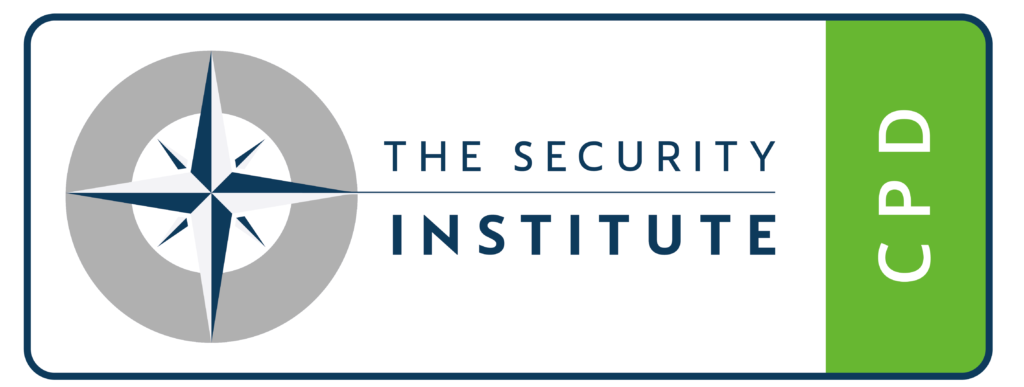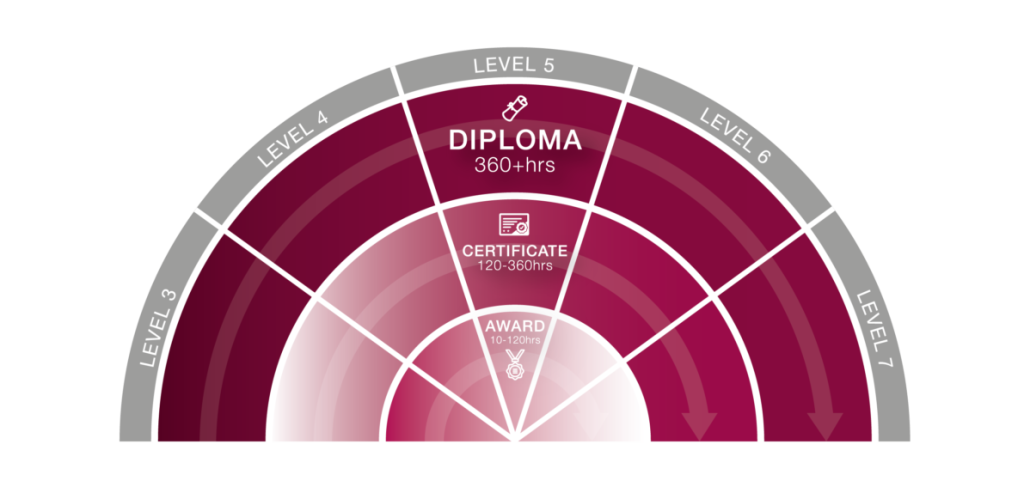By Keeva Gilchrist, MSc and Peter Jones, MBA MSc CSyP FSyI MBCS CTSP
What are we without standards? How do we measure ourselves against our fellow security professionals? How do we demonstrate our progression in the security industry? These are some of the questions that security professionals are faced with in their career journeys. Continuing Professional Development (CPD) is one of the ways we can achieve this. CPD is a process by which you can measure yourself against your peers and whilst demonstrating your commitment to your profession.
Charting a continuing professional development (CPD) journey can be a daunting task. Faced with the ongoing challenges of a demanding “day job”, many will take the easier path of consuming the development activities provided by their employer or simply ignore their personal development altogether. This passive approach is dangerous and can leave the individual poorly equipped for their next career move. So how does one plan and follow a meaningful personal development journey?
Select CPD activities which you enjoy
The most important thing to say is that CPD should not be a chore! Activities should be chosen that are interesting or, better still, fun. Selecting CPD activities without support and guidance is another obstacle to routine development and this is where a professional membership organisation can step in and provide the necessary framework for CPD activities. Security professionals can join the Security Institute, the UK’s largest membership body for the profession with over 4,500 members, and access a broad range of services and content to support their members’ CPD objectives, including providing a CPD framework that allows activities to be recorded and verified leading to the award of a certificate that demonstrates CPD commitment.

Types of CPD activities
There are three main types of activity to consider based on the individual’s appetite for a challenge: acquiring knowledge and skills, studying for an academic qualification, or gaining a professional accreditation.
Acquiring knowledge and skills can be done in a variety of ways. Reading trade journals and the Security Institute’s quarterly magazine, for example, is a great way of keeping up with the issues of the day. There are also many webinars available at security-institute.org, both live and recorded, that allow a new topic to be taken in a bitesize manner. From whatever shade of security, there is a range of topics that will be of interest.
For someone who is working full time, taking on a part-time academic qualification is a particularly difficult challenge: modules need to be attended, coursework needs to be handed in on time, examinations must be prepared for and taken and above all, the normal working day must not suffer because of this commitment.
Crucially, to assure success, a subject should be chosen that is not only relevant, but one for which the learner has a passion. Indeed, this is one of the most rewarding of pathways for those serious about their personal development. The Security Institute provides pathways for its members to access vocational training through its training partners such as PerpetuityARC Training, and access to academic qualifications through collaboration with various universities.
For those with the appropriate experience and academic qualifications, professional accreditation provides a way to benchmark themselves against the highest standards. The Chartered Security Professional (CSyP) accreditation represents the gold standard in security practice. Applicants go through a rigorous application process, where their strategic impact and competencies in security knowledge, practical application, communication, leadership, and personal commitment are verified by at least six independent assessors. This includes a professional interview.
Once admitted, a CSyP must complete annual CPD to the required standard. The Security Institute administers the Register of Chartered Security Professionals and provides many activities including application workshops that advise prospective applicants.

Giving back
But it does not end with what can be taken from The Security Institute. The organisation relies on its membership to contribute to furthering its aims and objectives. There are various ways that members can contribute including participation in the Validation Board where new members are assessed, or participation in one of the many special interest groups ran throughout the year. Voluntary work is particularly rewarding and allows the CPD points to be piled up!
Wherever you are on your professional journey, knowing where the next stop is facilitates growth. Whether those steps are large or small, try and be a better professional than you were yesterday. A planned approach to CPD with the support of the Security Institute will allow you to own your personal development. OWN IT!
-By Pete Jones, MBA MSc CSyP FSyI MBCS CTSP
“Security” encompasses the state of being free from danger or threat and embarking on a career in professional security management provides individuals with the opportunity to really make a difference to the everyday lives of others. Existing as a means of offering protection in a progressively risky world, many are now electing to enter into the arena as a first career choice, rather than an end- point after a lengthy career in the police or military. This is perhaps due to the fact that professional security management is an increasingly fascinating and fast-paced environment; there are very few industries that change as rapidly.
Concerningly, every exciting advancement presents a new challenge for criminals to overcome and consistently, organisations and the people at their core remain prime targets for attack. It is therefore paramount that modern security professionals at the forefront of threat analysis keep up with core developments in the field, by means of continued professional development and knowledge gain.
It is widely accepted that when recruiting candidates for specific job roles, evidence of suitable training stands out. Although sector-specific experience remains a very desirable and often a required factor for many appointments, recognised security qualifications are increasingly sought after.
But one only needs to spend a few moments trawling the internet to become utterly bamboozled by the sheer amount of training programmes on offer today. It, therefore, becomes crucial that individuals seeking to enter into or move around within the professional security domain consider the most appropriate pathway that they can take, in order to progress.
Beginning our journeys
So how do we begin our individual journeys? Firstly, it is important to establish what it is you wish to achieve within your career – do you want to specialise in a niche area, becoming the go-to person for your chosen field? Or do you want to have a broad knowledge of all things security management so that you can establish yourself within a managerial position? Have you spared a thought as to what sphere you would like to work in, be it public or private? And have you considered the challenges presented by the current security landscape – are you hoping to work towards addressing some of these problem areas through the work that you will do?

These are all key questions that you should be asking yourself when considering entering into the professional security management sector or moving around within the field. In a sense, you should ‘map it out’.
Once you have considered these questions and whittled your list down to a select few desirable roles, it is highly recommended that you approach professional membership organisations – like The Security Institute or ASIS – in order to gain access to a range of professionals further established in their own journeys and willing to share advice. The Security Institute’s Mentoring Platform is invaluable for this.
When choosing a new role, it is very beneficial to be aware of the good, the bad, and the ugly, and to scrutinize the list of required responsibilities for a particular position. Remember, the world of professional security management is an exceptionally vast one – the possibilities are limitless and the responsibilities you will undertake inform the training you should seek-out.
The role of training providers
Providers of professional security training should also be able to assist you with your scoping mission; any provider worth their salt should have an excellent knowledge of pathway building and conversations with reputable training companies should be focused on helping you to achieve a goal. Don’t ever feel backed into a corner and forced into a decision you aren’t fully comfortable with when speaking with training providers.
It is perfectly acceptable and in fact, very much encouraged that you pick-up the phone and ring training providers for conversations at this stage. Working within the professional security management training field for over eight years myself, I spend a lot of time talking through options with potential learners and formulating feasible and cost-effective plans. This is standard and an incredibly necessary part of the process.
The qualifications you need
Now that you have determined what area you would like to work in and have become equipped with an understanding of what is expected of you within the role, it is time to get ahead of the competition and add some qualifications to your CV.
As mentioned, there is an overwhelming abundance of courses out there today however, the simplest way to establish your needs is by identifying what each training programme can bring to you and your CV. This should be made very clear by training providers through their marketing materials. To start, there are accredited qualifications that provide you with internationally recognised certifications (BTEC, QNUK, SFJ – to name but a few), and then there are non-accredited courses, intended purely for knowledge-gain purposes. Accredited courses will always be awarded by a recognised awarding body, and should be accompanied by a level (i.e. level 4 BTEC Award).
The level of a course is determined by the complexity of the tasks that you will undertake to achieve your qualification. For example, at the lower end we have the level 3 which is equivalent to post-A Level study, followed by a level 5 – a first year, foundation degree and finally a level 7 – a Masters. At level 3, you may be expected to identify and/or explain particular concepts within a wider field, whereas at level 7, you will be expected to hone in (in substantial detail) on a particular niche, demonstrating a good level of critical analysis informed by vast research.
The higher the level of the course, the more likely it becomes that it will be accompanied by set eligibility criteria. When considering eligibility criteria, it is paramount that you seek advice from the training provider and that you pay attention to the qualification title – either Award, Certificate or Diploma.
These groupings determine the amount of hours that you will have to dedicate to study, with a Diploma course requiring upwards of 360 hours. Do not be disheartened if you do not meet these criteria, you can always work your way up over time, ergo carving a pathway towards a set goal.
A right pathway

One of the most established pathways in the professional security arena is the Security Institute’s suite of online, accredited security management programmes. Facilitated by PerpetuityARC Training – part of the Linx International Group – this pathway begins with the SRF BTEC level 3 Certificate in Security Management, followed by the SRF BTEC Level 5 Diploma, and finally – finishes with the Level 7 QNUK Endorsed Advanced Diploma.
Upon completion of the Advanced Diploma, learners can utilise credit towards full Masters programs. This includes 40 credits towards PerpetuityARC’s very own MSc in International Security and Risk Management programme in partnership with The University of West London.
This makes the pathway from level 3 to full Masters a real possibility for many. When speaking with training providers, you should never feel you are being pushed beyond your needs. If you don’t require a high-level programme for the aims you have in mind, do not feel you have to purchase one.
Similarly, for organisations seeking lower-level accreditations or knowledge-gain programmes for workforces, there is also the opportunity to seek-out in-house training through various delivery methodologies, including classroom, virtual classroom and online training. Remember: appropriate security training is not reserved for those working in the security arena, alone.
Shared responsibility
The common chorus echoes that “security is everyone’s responsibility” but you could also argue so is professional development. Through security awareness training programmes, organisations and individuals can make strides towards building an effective security culture, one that not only assists with the prevention of data breaches and large-scale phishing attacks, but also with the development of staff-wellbeing.
By supporting professionals in their learning through verified training, we collectively are helping to forge a clear journey that individuals new to the industry can follow and undertake. From the beginnings of security training and its key introductions to the pinnacle of accreditation –an MSc in Security – the more we support a verified, clear security training pathway, the easier it will be to prepare tomorrow’s security leaders to mitigate threats of all kinds and levels.
– Keeva Gilchrist, MSc, Learning and Development Manager